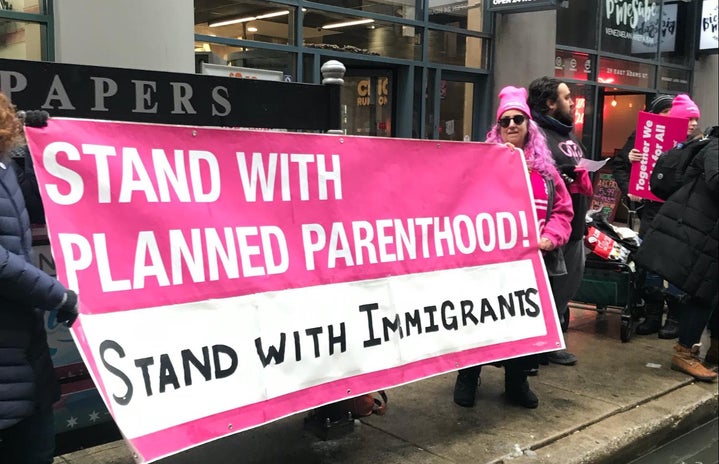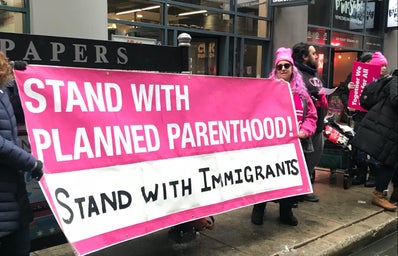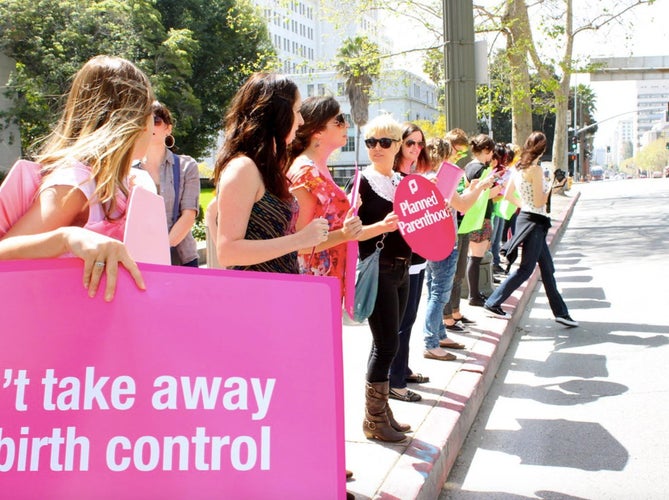In a country without easily accessible healthcare for everyone, Planned Parenthood is relied on by millions for its reproductive and primary care services. Especially people with low-income levels, those who live in rural areas and people of color, who face barriers to accessing healthcare already, depend on Planned Parenthood. Planned Parenthood plays an irreplaceable role in our country regarding healthcare and education, and it is important to understand and support the work they do.
Many are under the impression that Planned Parenthood only provides access to safe and legal abortions, but they do much more. Planned Parenthood offers testing and treatment for sexually transmitted infections, reproductive cancer screenings, vaccines, pregnancy services and prenatal care, PAP tests, transgender health services, birth control, condoms and more. They also are the nation’s largest provider of sex education.
Planned Parenthood is a non-profit organization, so they depend on funds from a few different sources. The three main sources are government reimbursements and grants, non-government revenue and private donations.
Money that comes from the government includes Medicaid and Title X. Medicaid, insurance backed by the government for people with low incomes, is often used by patients. Title X is our nation’s family planning program which pays for essential, preventative health care services.
Private insurance providers sometimes pay for Planned Parenthood visits, but if patients are not covered by their insurance or do not have insurance, they have to pay out of pocket. Private donations assist patients in paying for services some patients cannot afford by funding grants and programs. This allows an income-based sliding-scale fees system to be used by many centers to make care more affordable. If a patient cannot afford to pay the price for a service, donations can cover for them and they still have access to the service they need.
The funding Planned Parenthood receives supports over 600 health centers in the United States and also goes toward sex education and health expansion policy advocacy. Since Planned Parenthood is a non-profit organization, all of the money made goes right back to providing more services and helping patients have access to healthcare.
If Planned Parenthood did not have access to funding anymore or was “defunded,” it would be difficult for them to provide services to people who cannot afford them. If the current defunding bills in Congress are passed, it would block the 60% of patients who rely on Medicaid and Title X for preventative and primary care to help pay for their visits.
Texas and Wisconsin are two states who removed Planned Parenthood from their state family planning programs (Title X). This negatively impacted people’s lives in those states, creating further distances between health care centers and resulting in women having decreased access to contraceptives and increased rates of unplanned pregnancies.
Planned Parenthood’s health care centers are necessary to make sure services that are not as abundant, such as OB-GYN health care, are easily accessible for vulnerable communities who face barriers to getting health care. Supporting Planned Parenthood is important so patients can take advantage of the services the health centers provide, and so states will continue to allow Medicaid and Title X usage for Planned Parenthood. You can get involved with Planned Parenthood using this link. Find a Planned Parenthood near you using this link.



